Selenium vs Selenomethionine: What’s the Difference?
Selenium is an essential (required) nutrient that your body MUST have.
It’s part of several very important pathways that we will talk about in a second.
But what you need to know here is that if you don’t have enough selenium in your body then you will suffer symptoms ranging from hair loss to thyroid problems and more.
Not only is it required for optimal health, it’s actually fairly common for people to suffer from a deficiency (1), meaning they don’t have enough in their body.
This happens because selenium is only found in certain foods and because the selenium content in food has diminished over the last several years due to modern farming techniques (2).
And many people know this, especially those people who have thyroid problems.
Why?
Because you can supplement with over-the-counter selenium to FIX this deficiency and to help you FEEL better.
But here’s the deal:
Not all selenium supplements are created equal and some of the supplements which contain ‘selenium’ have inorganic forms that are not really usable by the body.
So if you are using one of these low-quality supplements then you may not be getting the nutrients you think you are which will NOT fix the problem.
Enter selenomethionine.
Selenomethionine is an organic FORM of selenium which is the same form naturally found in foods that you would normally consume in your diet.
It gets its name because it is bound to an amino acid (protein).
Is selenomethionine selenium?
Yes, and no.
Yes because it contains selenium and no because selenium is often used as a broad term to define anything that might ultimately turn into selenium after digestion (even if this process isn’t very efficient).
This brings us to the topic of this article.
Today we are going to discuss:
- The importance of selenium in your body and how supplementing with it can help you feel better
- Symptoms of selenium deficiency and how to know if you should supplement with selenium
- The different types of selenium formulations that over-the-counter supplements use and why they are not all that great
- How much selenium you should be supplementing with and the best supplement to use
Let’s jump in…
What does Selenium do for the Body?
If you are reading this then the chances are high that you are probably already well aware of the importance of selenium in your body.
But let me just remind you of a couple of key points:
Why is selenium so important?
Because it powers a group of enzymes that are selenium-dependent (3).
In other words, these enzymes do NOT work unless you have enough selenium in your body.
If you don’t, then the enzymes may work but they are only functioning at partial capacity.
What do these enzymes do?
They power the production of important anti-oxidants such as the master antioxidant glutathione.
They help control free radicals in your cells and prevent your own body from damaging itself.
This is why thyroid patients with Hashimoto’s like to supplement with selenium, by the way!
If you can provide your body with enough selenium then these enzymes will be able to produce glutathione at 100% which can help reduce inflammation in tissues such as your thyroid gland.
These enzymes also have other important functions such as helping your body produce energy in your mitochondria, helping activate thyroid hormone, and more.
The bottom line?
You NEED these enzymes to be functioning at 100% if you want to live a healthy life and you can ensure that they do by ensuring that you have adequate selenium levels in your body.
The Different forms of Selenium Matter
As I mentioned earlier, not all formulations of selenium are created equal.
And the problems with selenium exist with virtually ALL types of natural supplement ingredients as well, by the way.
Here’s how it works:
Nutrients, like selenium, can be formulated in such a way that changes what type of carrier they are bound to.
This carrier can either HELP with the absorption and breakdown of the nutrient or make this process harder.
Why are there so many versions of these ingredients like selenium?
Well, the short answer is money.
It costs more money to bind selenium to naturally occurring substances than it does to take an inorganic form and throw it in a supplement and call it a day.
But if you aren’t someone who understands this difference you may be buying a cheaper supplement that doesn’t actually work very well.
When it comes to selenium you want to look for a selenium supplement that contains selenomethionine as the SOURCE of selenium.
Other formulations that are ideal include the selenium glycinate complex.
This form of selenium is an ORGANIC form of selenium and contains selenium in the exact same form as it is naturally found in food.
Consuming selenomethionine is like getting your selenium from a natural source such as a brazil nut but sans the other ingredients.
This organic form of selenium is more absorbable and usable by the body (4).
The form that you want to avoid is selenium in the form of selenite.
Selenite is an INORGANIC form of selenium that is more difficult to absorb and utilize by the body.
It also happens to be cheaper so typically the cheaper the supplement the more likely it is to contain this type of selenium.
Also, be sure to watch out for people who combine both selenomethionine and selenite into a ‘complex’.
If they don’t disclose what percentage of the selenium is selenomethionine and which is selenite then you may be getting a supplement that is 95% selenite and 5% selenomethionine.
It’s obviously better than getting 100% selenite but it is still not what you want.
Signs You May Need to Supplement with Selenomethionine
How do you know if you need to use selenium?
It’s actually fairly easy to tell, and also very safe to supplement with (as long as you follow a few important directions).
It’s far better to look at your SYMPTOMS instead of serum lab values when it comes to diagnosing selenium deficiency.
Even though some lab companies may have tests available for selenium and other micronutrients does not mean that these are accurate nor should you pretend that they are.
It’s incredibly difficult to assess nutrient deficiencies in the body because these nutrients are primarily found INSIDE of your cells.
And when you get a blood draw guess what you are checking?
Not the amount of nutrients in your cells but the number of nutrients floating around in your bloodstream.
You can make inferences on what that means for your cells but I find these inferences to be hit or miss and often very inaccurate.
A better way to determine if you have a deficiency is to simply take a look at your symptoms, your diet, and your lifestyle.
For instance:
Are you consuming foods that are naturally high in selenium?
Are you consuming foods that are naturally high in nutrients such as whole foods (on a DAILY basis) or supplements fortified with selenium?
Are you experiencing any of the symptoms of selenium deficiency?
Answering these questions will be far more useful than looking at your blood selenium level.
If you are NOT consuming a whole food diet with foods naturally high in selenium AND you find that you have some of the symptoms of selenium deficiency (which we are about to discuss) then supplementing with selenium is probably a good idea.
And, as long as you do it correctly, there’s virtually no risk involved.
How can you tell if you are selenium deficient?
These are the most COMMON symptoms of selenium deficiency:
- Hair loss or changes to hair quality and texture
- Thyroid dysfunction of ANY type including problems with T4 to T3 conversion and a diagnosis of Hashimoto’s thyroiditis
- A weakened immune system or susceptibility to colds and viruses
- A lack of energy or fatigue
- Low serum free thyroid hormone lab tests (low free T3 and low free T4)
- Elevated serum iron
- A history of other mineral deficiencies such as magnesium, calcium, iron, copper, or zinc (if you have a deficiency in one you most likely have a deficiency in the others as well)
How to Supplement with Selenomethionine and Where to Get it
Getting selenomethionine is easy, but understanding how to dose it correctly is the slightly harder part.
It turns out that it is possible to take TOO much selenium and doing so may worsen the very symptoms you are trying to treat.
And you can’t really trust the RDA when it comes to supplementing with selenium.
It’s set so low as to be unhelpful for the majority of people.
Instead, you have to go off of other information.
It’s been shown that consuming up to 400mcg of selenomethionine each day is a safe dose.
It’s when you start to exceed this 400mcg dose that you can get into trouble.
And dosing anything less than 50mcg per day is probably not likely to cause any benefit as that dose is simply too small.
I recommend trying to find a dose somewhere in the 50 mcg to 150 mcg dose range.
This will ensure that you are getting ENOUGH (more than the RDA which is set around 50mcg per day) but far enough away from the high end at 400mcg per day which can cause issues for some people.
This dosing range also leaves room for any extra selenium that you may get from your diet or other supplements.
Because let’s get real for a minute, you should be trying to eat as healthy as possible and by doing so you will naturally get your selenium from your diet.
Final Thoughts
Selenium is an incredibly important nutrient that plays a pivotal role in helping to manage and regulate specific enzymes in your body.
Because many people are deficient in selenium it’s often a great idea to consider supplementation.
But when you consider supplementation make sure you find the BEST source and form of selenium.
That form is selenomethionine.
It’s the most usable form by the body and it happens to be organic and in the same state as selenium which you would find in your diet.
When taking selenium, make sure you find a supplement that contains this formulation and use a dose of around 50mcg to 200mcg per DAY.
Now I want to hear from you:
Are you currently taking selenomethionine?
If not, what type of selenium are you taking?
Did you know that there was a difference in the types of selenium on the market and that some are better than others?
Do you have any of the symptoms of selenium deficiency?
Leave your questions or comments below!
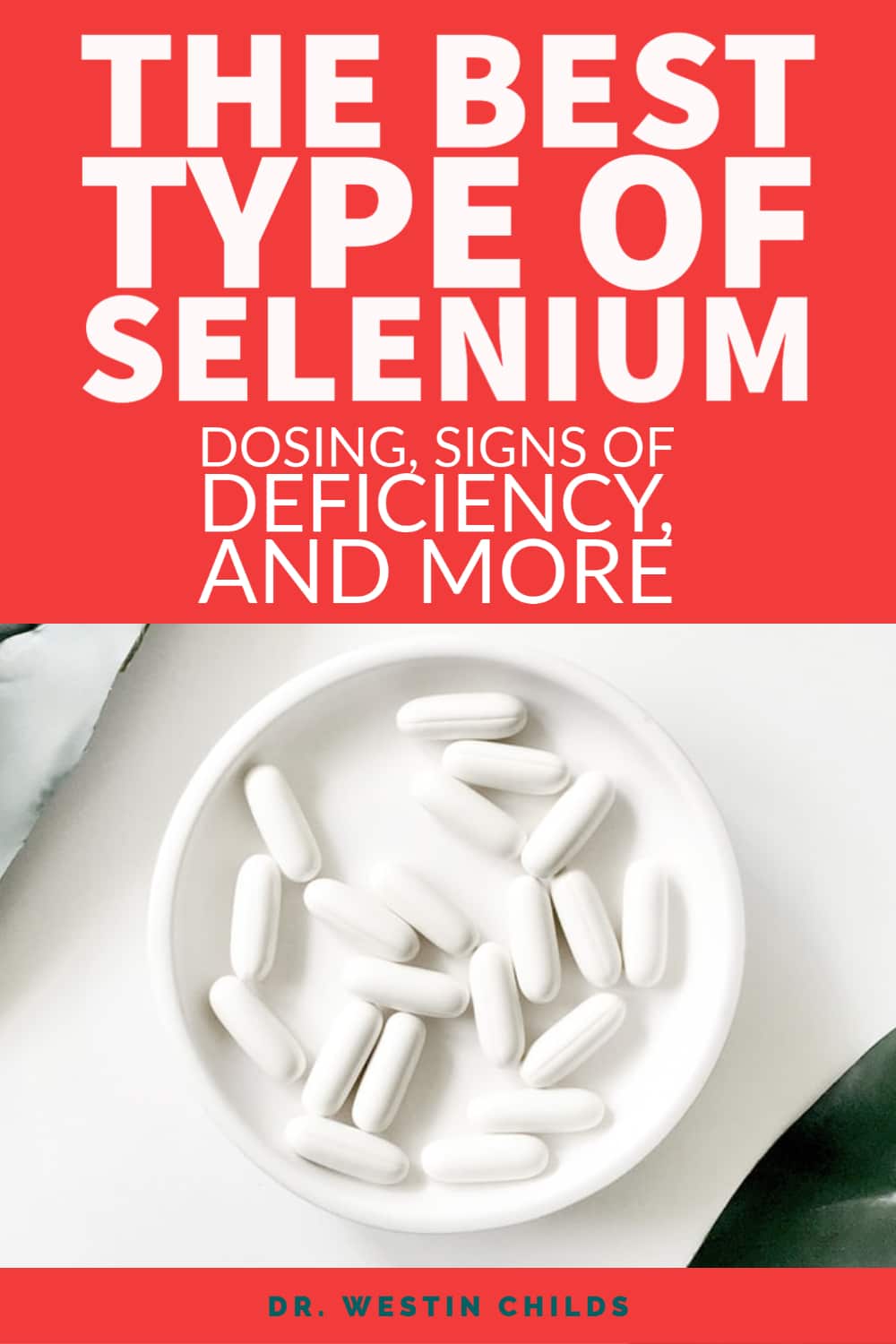
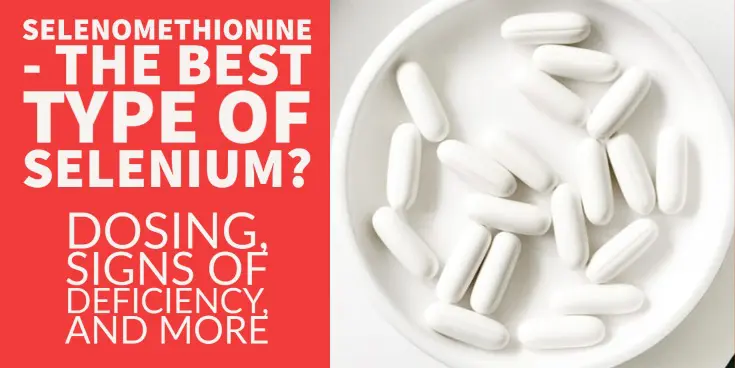
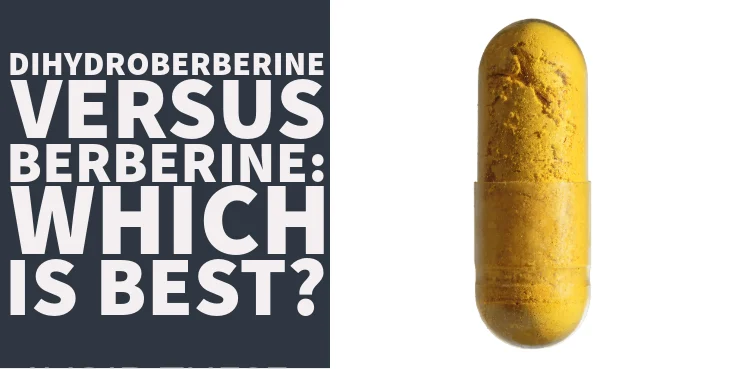
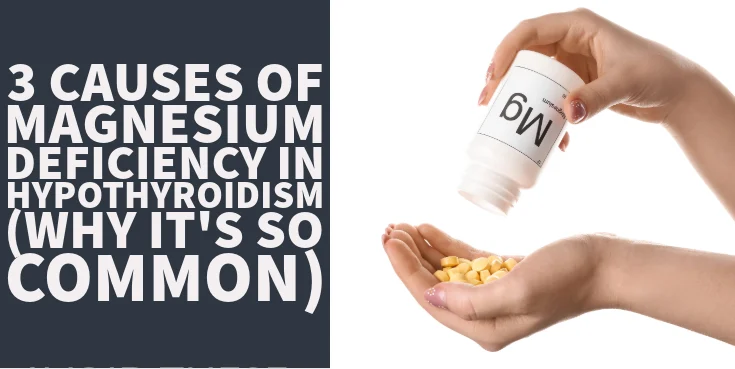
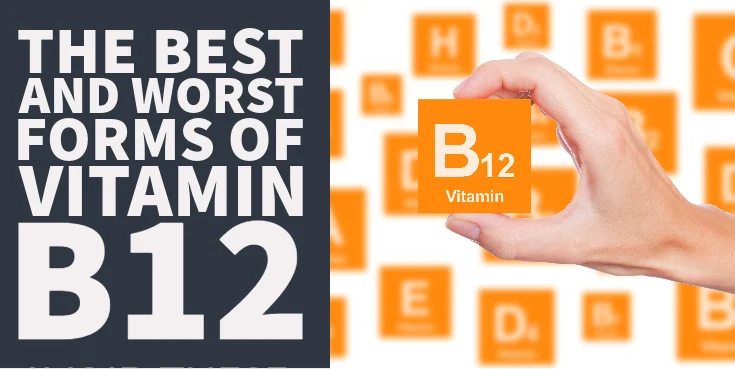
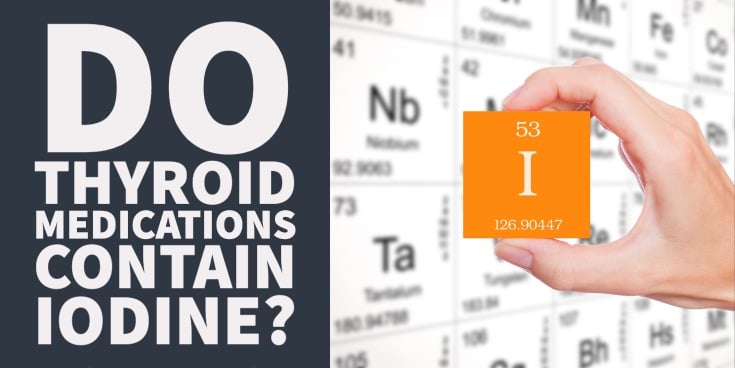
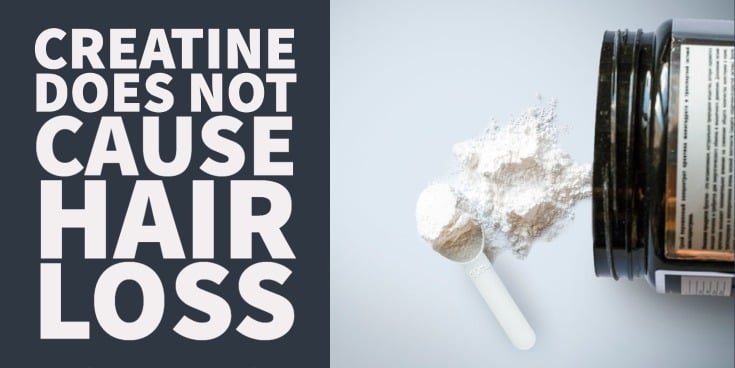


Great information, thank you. I currently take from Trace minerals Ionic Selenium 300mcg. Ingredients consist of Magnesium (from ITM) 20mg, Selenium (sodium selenate) 300mcg, chloride (from ITM) 60mg, Ionic trace minerals 350mg.
In your article you talked of the inorganic selenite. It this different than the selenate ?
Is selenoexcell a better form of selenium?
Its an organic yeast form with claims thats its more bioavailable and more effective in penetrating tissues especially in the case of the prostate.
Any thoughts?
I currently take Nature’s Blend Selenium 200 mcg (selenium from selenium yeast). Other ingredients: Calcium Phosphate, Cellulose, Croscarmellose Sodium, Magnesium Stearate, Silica.
It seems there are ingredients in there that are not necessary. Dr. Child’s, what do you recommend?
I take one daily Life Extension Super Selenium Complex containing:
50 mcg l-selenomethionine,
50 mcg sodium selenite,
100mcg se-methyl l-selenocysteine and
20.1 mg Vitamin e (d-alpha tocopheryl succinate)
Hi Elizabeth,
Thanks for sharing!
Can I send my labs and tell me if I am taking the right supplements I am also on NP thyroid, please I am very confused
Hi Lizbeth,
I’d be happy to help direct you to the right supplements! Send an email to us at hello@restartmed.com with a brief thyroid history and your major symptoms and we can help direct you to the right supplements.
Dear Dr. Childs,
Interesting article re: Selenomethionine. Do you sell this product?
If not, can you recommend a brand name?
Thanks,
Cynthia
Hi Cynthia,
I do not have an isolated selenium supplement but I have selenium in many of my supplements. You can see an example here: https://www.restartmed.com/product/thyroid-daily-essentials-thyroid-multivitamin/
I’m taking PURE Encapsulations Selenomethione 200mcg per day. Love it.
Hi Kay,
Glad it’s working for you! I used to recommend that supplement often.
I have hypothyroid and possible Hashimoto. I currently take from Trace minerals Ionic Selenium 300mcg. Ingredients consist of Magnesium (from ITM) 20mg, Selenium (sodium selenate) 300mcg, chloride (from ITM) 60mg, Ionic trace minerals 350mg. Didn’t know there was a right and wrong selenium.
Is this the right selenium? I still have loss and breakage of hair and go through times of fatigue and lack of energy even after a good night’s sleep.
Hi Carole,
Your selenium supplement is not in the selenomethionine form.
A holistic FP MD told me to eat 2 Brazilian nuts a day. With all other supplements I’m taking , Ill take the natural.
Hi Nancy,
There are a few cases in which natural isn’t always best and this includes the case of iodine and selenium. The reasons for this are stated here: https://www.restartmed.com/7-thyroid-superfoods/
I am taking your T3 conversion supplement and it contains 100 MCG of the correct form. Also eat 3 to 4 Brazil nuts a day.
Hi Sally,
You are on the right track! Thanks for sharing.
What about methylselenocysteine which is in Selenium Synergy made by Jarrow?
Hi Helen,
Many types of selenium can work but if you are taking something and don’t feel it’s working then it may be time to swap.
I just checked mine wrong kind,wife has hair loss.
So many scams out there.
Selenium 200mcg from. Albion selenium glycinate complex
Rice flour ,gelatin, malttodextrin,.
I’m going to use my old standby Pure for us .
Hi Kenneth,
Hair loss from selenium is usually dose-dependent! Please see this article: https://www.restartmed.com/selenium-toxicity/
I still remember the first day I took seleniometionine, what a difference in my energy, hair, nails, concentration, everything! Then I discovered this natural selenium coming from mustard seeds, from the company Sun Organics in the UK, it’ a natural, organic, bio selenium than works wonders for me. I was diagnosed with Hashimoto 17 years ago. I love taking my natural organic selenium with a bit of iodine, zinc, copper, magnesium and manganese. Thanks a lot for your divulgation Dr Childs, you are the best on the Internet!
Hi Teresa,
Happy to help and thanks for sharing!
I am taking 200mcg, yeast free selenium from L-Selenomethionine
Brand – NOW Foods
Other ingredients…rice flour, hypromellose (cellulose capsule) and static acid (vegetable source)
Hi Brenda,
Glad you found something that works for you!
I don’t take any supplements but I have just started eating four Brazil nuts per day. I would really prefer to get any of my nutrients through my diet.
Hi Carol,
I would recommend reading these articles on why brazil nuts are not necessarily the best way to get selenium:
https://www.restartmed.com/7-thyroid-superfoods/
https://www.restartmed.com/selenium-toxicity/
Does your thyroid multi vitamin have this type of selenium and is it enough?
Hi Pam,
Yes, if you are using any of my supplements you are good to go!
Is selenomethionine okay or preferred for people with
MTHFR issues? If not, what kind is best?
Hi Shirley,
Yes, that type of selenium is fine.
Dr. I am on your Thyroid essentials vitamins for hypothyroid and the thyroid essential regrowth complex for hair what kind of selenium brand do you recommend also want to know bout this Glucomannan how to use for weight loss and where to get it thank you
Hi Linda,
If you are taking both then you are good to go on selenium! In terms of using glucomannan for weight loss, please see this page + video: https://www.restartmed.com/product/glucoslow-fiber/
I have a extra enlarge thyroid goiter, level are find
I am taking your supplement, Thyroid Daily Essentials which shows “selenium (as selenium glycinate)”
According to article above, this is not the correct form.
What gives?
Hi Judy,
In the article I mention that selenium glycinate is also a preferable form of selenium 🙂 All of my supplements are formulated with the ideal versions of nutrients/vitamins including thyroid daily essentials.
Thank you very much for the information Dr. Childs.
I am a 60 year old male with hypothyroidism, have had this issue since 2008.
The selenium which I have taken for the past year is natural factors – 200mcg – once a day.
Thank you
George
Hi George,
Glad you found it helpful!
This info was VERY useful and I found it very helpful!
I recently started giving my 12 year old son (who by-the-way is also T1D since age 4 1/2, and Celiac since age 5, and now showing since age 9 increasing TPO antibodies – thyroid issues) HALF of a regular large Brazil nut each day along with his other regular vitamins that he takes (iron, zinc, D, multivitamin – his annual bloodwork has always shown low on these his whole life – I never understood why since his Celiac is well-controlled). Anyways, I figured we might just get lucky and taking selenium with Brazil nut might do something to help slow down the exponential increase of his TPO Ab? Figured better than doing nothing? But I’m now wondering if HALF a brazil nut isn’t enough (since I based that amount on the RDA)…maybe should I give more, an entire nut? He has quite a good diet…very little processed foods, low carb, high fiber, lean meats, lots veggies, so (I’m hoping!) is getting at least an average amount of selenium in his diet? Though not sure…wondering what your opinion is? Would you give a whole brazil nut? Or, would supplements be better than a brazil nut in his diet? Thanks!!
Hi Karen,
I tend to prefer the use of supplements over brazil nuts because it’s difficult to nail down how much each brazil nut has. Some studies have shown that brazil nuts can vary wildly in their selenium content so it’s very difficult to know how much you are actually getting. You can fine tune dosing of selenium much easier with supplements.
Selenium glycinate complex? Is that bad? Which category does that fall into? Is it useful for cancer? Is 200mg/day a good dose?
Hi Jen,
Selenium glycinate complex is an approved form so that would be fine.
Unfortunately I did not get what I was looking for in the article. WHY is selenomethionine the best form of selenium?
I had a pituatary tumor years ago and took Selenium sup. However, older age has got me tired and I recently bought Solaray L-Selenomethionine 100mcg, but it gives me diarrhea. Might there be wheat in it? I dont know why I cant tolerate it?
Dr. Childs, your article is superb. I currently take (and have taken for years) 100 mcg of Selenomethionine. I take whole, food-based supplements 5 days a week (2 days off for ‘good behavior’), and I take the first week of each month off (Sunday, Monday, Tuesday, Thursday, Friday). I have none of the symptoms about which you write, but several months ago the fingernail of my left pointer finger started growing in with a vertical crack up the middle. I have been investigating WHY, and that is how I found your article when I was researching Selenomethionine vs. a new product from Swanson called Selenium (from L-Se-methylselenocysteine) (SeMSC)200 mcg. I was curious what it is and found you, although you do not write about this supplement. I should mention that I was a First Responder on 9/11 as my office was at 100 Wall Street. I breathed that toxic air for months, and in the last 10 months they found a small nodule in my upper left lung which was removed and everything was benign. Two months ago, I found a tiny nodule in my right breast, and it was removed via a lumpectomy. Pathology report: benign. I am watched and covered by The World Trade Center Victims Compensation Fund. You are welcome to call or email me. I would take issue with your favoring zinc with picolinic acid vs zinc monomethionine known as L-OptiZinc. Many years ago, I researched picolinic acid, and I learned that it harmed the blood cells. I am published by a division of Penguin Random House for my wonderful health and wellness book “MYBYBLE … For the Extended Lifespan”. I hope that we talk. With all good wishes … Carole Lynn
Hi Carole,
Thanks for sharing! I actually spent some time assisting in a research project that was assessing benign pleural plaques in those exposed to asbestosis during the aftermath of the world trade center collapse. In regards to zinc picolinate, I don’t actually recommend that form and actually recommend several others in its place: https://www.restartmed.com/the-best-form-of-zinc-to-take-for-your-thyroid/
If this article makes mention of zinc picolinate then it likely hasn’t been updated with my most recent thoughts on that topic.
HI. Thank you for this information. Can you clarify what Selenium in form of “amino acid chelate” means? Im having trouble finding anything specifying this version in particular. thank you!
Hi GB,
It’s typically named selenium glycinate complex on the supplement facts panel. It’s the same form used in my Thyroid Daily Essentials: https://www.restartmed.com/product/thyroid-daily-essentials-thyroid-multivitamin/
I have read about Selenoexcell, a form of selenium yeast which is a more bioavailable form than selenomethionine.
There have been numerous studies which show its more effective against cancer especially prostate cancer due to its superior penetration of tissue.
Any thoughts on how this form compares to selenomethionine will be appreciated